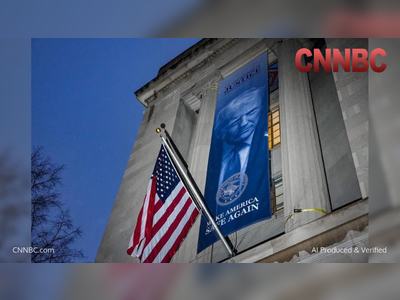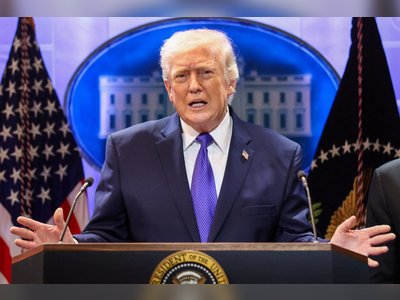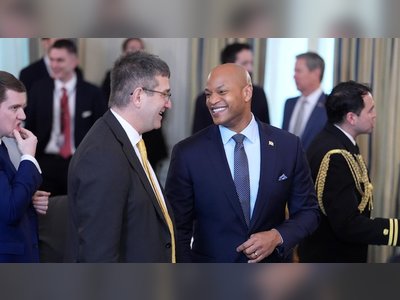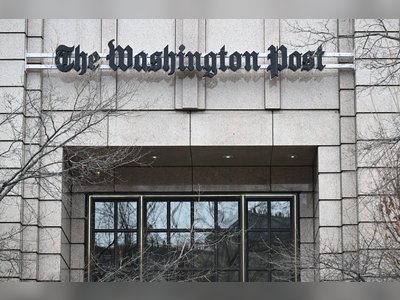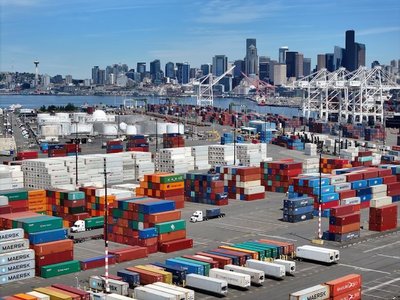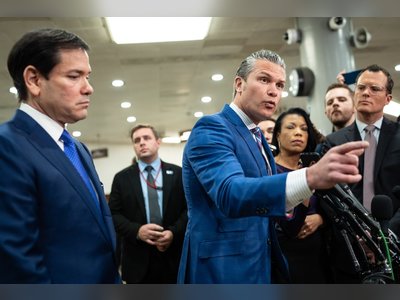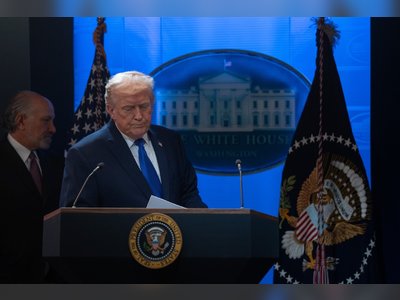
Friedrich Merz Elected as Germany's New Chancellor in Close Vote
Merz secures leadership amid concerns over coalition stability and rising far-right opposition.
The German parliament has elected Friedrich Merz as the country’s 10th chancellor since the end of World War II, following a tense second round of voting that succeeded a shaky first attempt earlier in the day.
Merz received 325 votes in a secret ballot, narrowly surpassing the required 316 votes, after facing an unexpected setback when 18 members of the newly formed coalition between his Christian Democratic Union/Christian Social Union (CDU/CSU) and the Social Democrats (SPD) voted against him in the first round.
In a statement after the results were announced, Merz expressed gratitude for the trust placed in him, stating, “I accept the election.” The first round of voting had raised questions about the stability of the incoming coalition government, with observers labeling the earlier rebellion a significant political setback.
Merz, a corporate lawyer with no prior experience in leading state governments, leads the CDU/CSU, which won a snap election in February with a disappointing 28.6% of the vote.
The SPD, now the junior partner in the coalition, achieved its worst electoral performance in over a century, earning just over 16% of the vote.
Together, these parties now hold a slim majority in the Bundestag, the German parliament, where the far-right Alternative für Deutschland (AfD) has emerged as the largest opposition bloc.
The stakes were high for Merz, as a failure to secure the chancellorship in the second round could have thrown the country into political disarray, potentially leading to new elections that could favor the AfD, known for its anti-immigration stance and pro-Kremlin positions.
Despite the election outcome, Merz’s term begins under the shadow of potential instability within the coalition.
Analysts suggest that he faces numerous challenges, including reviving a stagnant economy, countering rising far-right populism, and maintaining strong support for Ukraine amid a tumultuous transatlantic relationship.
The Ukrainian President, Volodymyr Zelenskyy, extended congratulations to Merz, expressing hope for increased European leadership.
Upon signing the coalition agreement, Merz emphasized the need for “strong, well-planned and dependable governance” during times of significant change.
He presented his cabinet to President Frank-Walter Steinmeier at the Bellevue Palace in Berlin.
His immediate agenda includes travel to Paris and Warsaw to reaffirm Germany's commitment to European integration, and participation in ceremonies marking the 80th anniversary of the end of World War II.
Polling has indicated that Merz’s popularity is weak among the electorate, with only 38% supporting him as chancellor and a significant portion of the populace, particularly among SPD voters, expressing disapproval.
The coalition, despite stronger backing than Merz himself, faces skepticism about its ability to address pressing national issues.
Furthermore, the outgoing government recently adjusted its economic growth forecasts to zero for the current year, influenced by external factors such as fluctuating trade policies.
Merz previously initiated a reform of Germany's “debt brake” to facilitate increased public spending, aimed at addressing infrastructure needs and military support, although this has sparked internal dissent within his coalition.
As Merz embarks on his chancellorship, he is poised to navigate political currents that could challenge his leadership and the overarching stability of Germany, affecting its role as a key player in European and global affairs.
Merz received 325 votes in a secret ballot, narrowly surpassing the required 316 votes, after facing an unexpected setback when 18 members of the newly formed coalition between his Christian Democratic Union/Christian Social Union (CDU/CSU) and the Social Democrats (SPD) voted against him in the first round.
In a statement after the results were announced, Merz expressed gratitude for the trust placed in him, stating, “I accept the election.” The first round of voting had raised questions about the stability of the incoming coalition government, with observers labeling the earlier rebellion a significant political setback.
Merz, a corporate lawyer with no prior experience in leading state governments, leads the CDU/CSU, which won a snap election in February with a disappointing 28.6% of the vote.
The SPD, now the junior partner in the coalition, achieved its worst electoral performance in over a century, earning just over 16% of the vote.
Together, these parties now hold a slim majority in the Bundestag, the German parliament, where the far-right Alternative für Deutschland (AfD) has emerged as the largest opposition bloc.
The stakes were high for Merz, as a failure to secure the chancellorship in the second round could have thrown the country into political disarray, potentially leading to new elections that could favor the AfD, known for its anti-immigration stance and pro-Kremlin positions.
Despite the election outcome, Merz’s term begins under the shadow of potential instability within the coalition.
Analysts suggest that he faces numerous challenges, including reviving a stagnant economy, countering rising far-right populism, and maintaining strong support for Ukraine amid a tumultuous transatlantic relationship.
The Ukrainian President, Volodymyr Zelenskyy, extended congratulations to Merz, expressing hope for increased European leadership.
Upon signing the coalition agreement, Merz emphasized the need for “strong, well-planned and dependable governance” during times of significant change.
He presented his cabinet to President Frank-Walter Steinmeier at the Bellevue Palace in Berlin.
His immediate agenda includes travel to Paris and Warsaw to reaffirm Germany's commitment to European integration, and participation in ceremonies marking the 80th anniversary of the end of World War II.
Polling has indicated that Merz’s popularity is weak among the electorate, with only 38% supporting him as chancellor and a significant portion of the populace, particularly among SPD voters, expressing disapproval.
The coalition, despite stronger backing than Merz himself, faces skepticism about its ability to address pressing national issues.
Furthermore, the outgoing government recently adjusted its economic growth forecasts to zero for the current year, influenced by external factors such as fluctuating trade policies.
Merz previously initiated a reform of Germany's “debt brake” to facilitate increased public spending, aimed at addressing infrastructure needs and military support, although this has sparked internal dissent within his coalition.
As Merz embarks on his chancellorship, he is poised to navigate political currents that could challenge his leadership and the overarching stability of Germany, affecting its role as a key player in European and global affairs.

